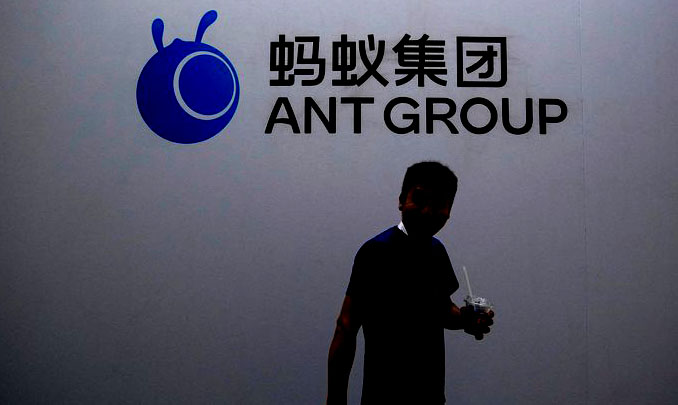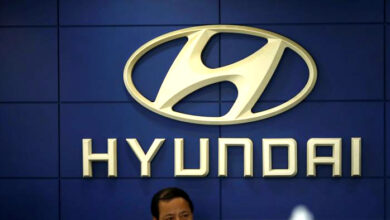Surprising Move: Ant’s Share Buyback Values Company at Significant 75% Discount to IPO

Ant Group dropped a bombshell on Saturday by announcing a surprise share buyback, which pegs the fintech behemoth’s value at a mere $78.54 billion. That’s a far cry from the lofty $315 billion it was once hailed at during its ill-fated IPO attempt in 2020. This move offers a glimmer of hope for investors who’ve weathered the storm of the firm’s extensive regulatory revamp and are eager to cut their losses.
This news comes hot on the heels of Ant’s staggering $984 million fine, a punishment that effectively draws the curtains on the long-drawn regulatory drama surrounding the company. It marks a significant milestone in China’s crackdown on the internet sector, bringing it one step closer to the finish line.
Ant has extended a proposal to its shareholders, offering to repurchase up to 7.6% of its equity interest at a price that pegs the company’s valuation at approximately 567.1 billion yuan ($78.54 billion). However, this valuation represents a steep 75% discount from the $315 billion figure of 2020, when Ant’s IPO dreams were dashed by the whims of Chinese regulators.
“The repurchased shares will be transferred into Ant Group’s employee incentive plans to attract talents. The repurchase proposal will also provide a liquidity option for the company’s investors,” the firm stated.
Notably, Ant’s major shareholders, Hangzhou Junhan Equity Investment Partnership and Hangzhou Junao Equity Investment Partnership, have voluntarily chosen to stay out of the buyback. These entities hold more than 50% of Ant’s shares on behalf of the company’s executives and employees.
Zhang Zihua, chief investment officer at Beijing Yunyi Asset Management and an investor in Ant’s affiliate, e-commerce titan Alibaba (NYSE:BABA), remarked, “While Ant buys back shares at a valuation much lower than the $150 billion figure in the company’s last fundraising round in 2018, the plan provides some liquidity to its existing investors. Liquidity might be more important than valuation for some investors that look to exit.”
He further noted that the share buyback caught both him and the markets off guard, as it was an unexpected move at this juncture.
In a major development, China’s central bank imposed a fine of 7.12 billion yuan on Ant and its subsidiaries. This penalty is widely seen as a stepping stone for the company to obtain a financial holding company license, refocus on growth, and ultimately revive its plans for a stock market listing.
“Resolving the Ant IPO is crucial for China to restore investor confidence,” emphasized Wang Qi, chief executive of China-focused asset manager MegaTrust Investment. “Any progress made here not only benefits Alibaba but also serves the greater good of the internet and fintech industries.”
Ant, founded by billionaire Jack Ma, operates China’s ubiquitous mobile payment app Alipay, along with other ventures encompassing consumer lending and insurance product distribution.
In April 2021, Ant embarked on an extensive business restructuring journey, transforming itself into a financial holding company subject to regulations and capital requirements akin to those for traditional banks.
This fine levied on Ant marks a significant milestone in China’s bruising crackdown on private enterprises within the technology sector. The crackdown commenced with the shelving of Ant’s IPO in late 2020 and subsequently led to massive market value losses for several companies.
Following the cancellation of the IPO and the forced restructuring, some of Ant’s global investors have revised their valuation of the company. Reports suggest that Fidelity reduced its valuation to $68 billion in mid-2021.
Hanyang Wang, an analyst at 86Research, commented, “The buyback price exceeds the internal valuations of many institutions. Therefore, I believe that some institutions will choose to participate in the buyback. At the same time, initiating a stock buyback also indirectly conveys to investors that the chances of a short-term IPO recovery are slim.”
On Friday, Chinese authorities also announced fines against two Chinese banks, an insurer, and Tencent Holdings (OTC:TCEHY)’s online payment platform Tenpay.
The People’s Bank of China (PBOC) stated that most of the major issues plaguing platform companies’ financial businesses have been rectified. Regulators will now shift their focus from individual firms to overall industry regulation.
Please note that the currency conversion rate is $1 = 7.2205 Chinese yuan renminbi.





